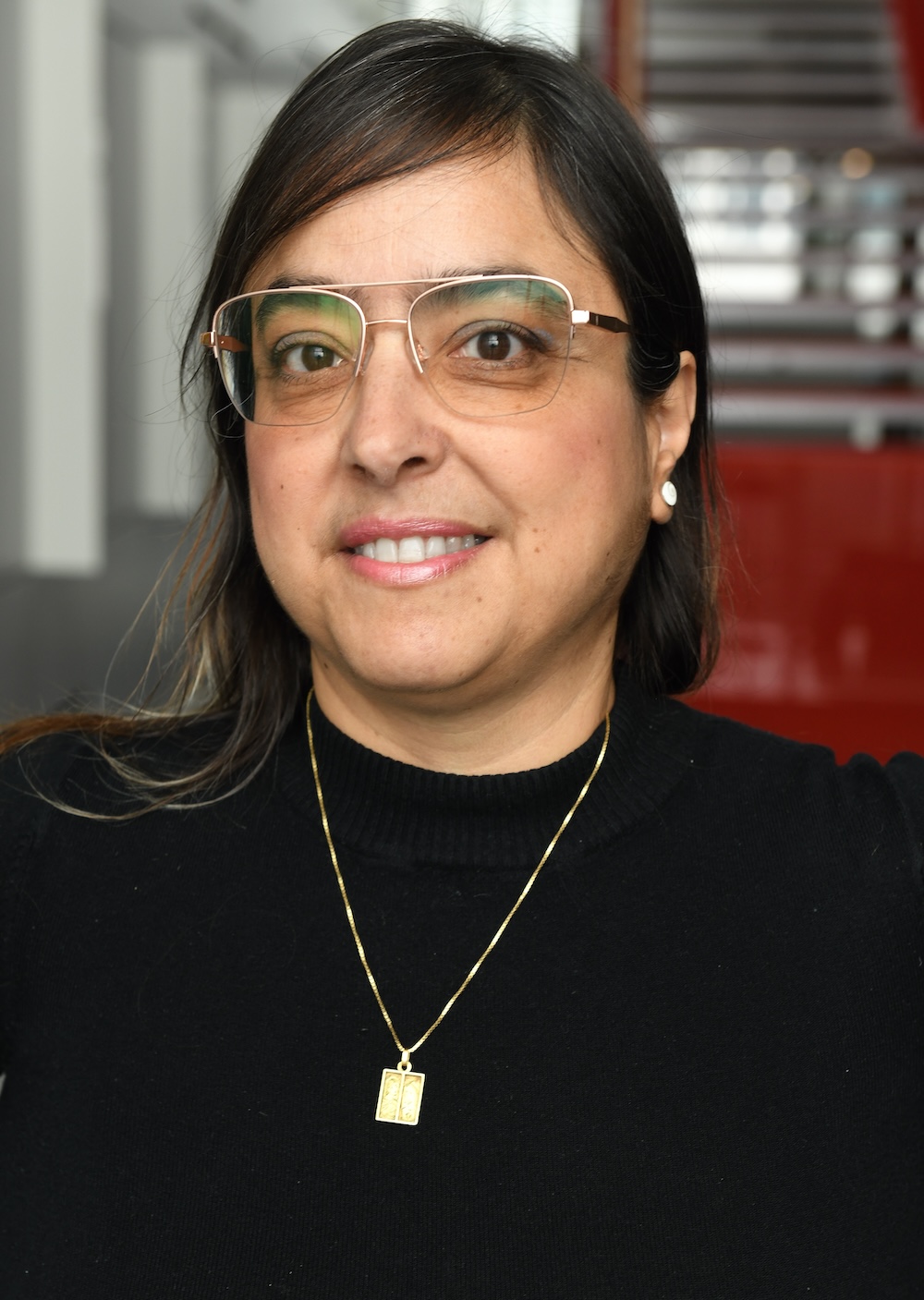Meet Dr Alejandra Tomas Catala
What course do you teach on and what is your role?
 I am co-Director of the MSc Applied Genomics, Module Lead for the Grant Writing Module 5 and co-Lead for the laboratory placement Module 6, as well as Lecturer teaching microscopy methods for Module 2.
I am co-Director of the MSc Applied Genomics, Module Lead for the Grant Writing Module 5 and co-Lead for the laboratory placement Module 6, as well as Lecturer teaching microscopy methods for Module 2.
Please can you give a brief overview of what the MSc in Applied Genomics is all about?
Our course gives an overview of the state of the art in multiomic technologies and how they can be applied for research in biomedicine and more widely in the life sciences, with a particular focus on methods for in vitro and in vivo modelling of disease.
How has your career led you to teaching?
My main role is as a Researcher in Molecular Cell Biology of receptors in Metabolism. I regularly employ the approaches and techniques we describe in our Master's course to my own research so it has been a natural progression to also help shape and coordinate a programme of study on these areas.
What aspect of the course do you enjoy teaching the most?
I am particularly fond of small group teaching, an approach I implement during the grant writing Module, where students get to work in teams to identify a research subject of their interest and write a grant application which simulates the collaborative grant and project writing mode of a real world research laboratory.
What do you hope your students will go on to achieve on completion of this course?
I would like to see a proportion of our students embarking in academic careers in Biomedical research, with others focusing in research roles in a Pharma Industry environment.
What is your favourite part about teaching at Imperial College London?
Being able to share experiences and tips with other colleague lecturers and having an open and interactive relationship with the students where we all work together to achieve the common goal of developing written reports to the best possible standards and achieving the transfer of as many useful skills as possible to our students.
How do you feel your research activities within the Department of MDR complement your education activities on the course?
As explained above, my research and teaching activities are very interconnected, with research and methodologies in my lab, and grant writing activities as a scientist, informing my delivery of lectures and workshops to our students.
What aspects of your course do you feel are the most valuable and exciting for students?
Having access to the latest developments and state of the art technologies in multiomics applications, being at the forefront of what is possible in Biomedical research.
What advice would you give someone thinking about taking your course?
Being open minded and willing to engage in open discussions with your peers and teachers to achieve the common goal of resolving open questions will give you the best chance of success.